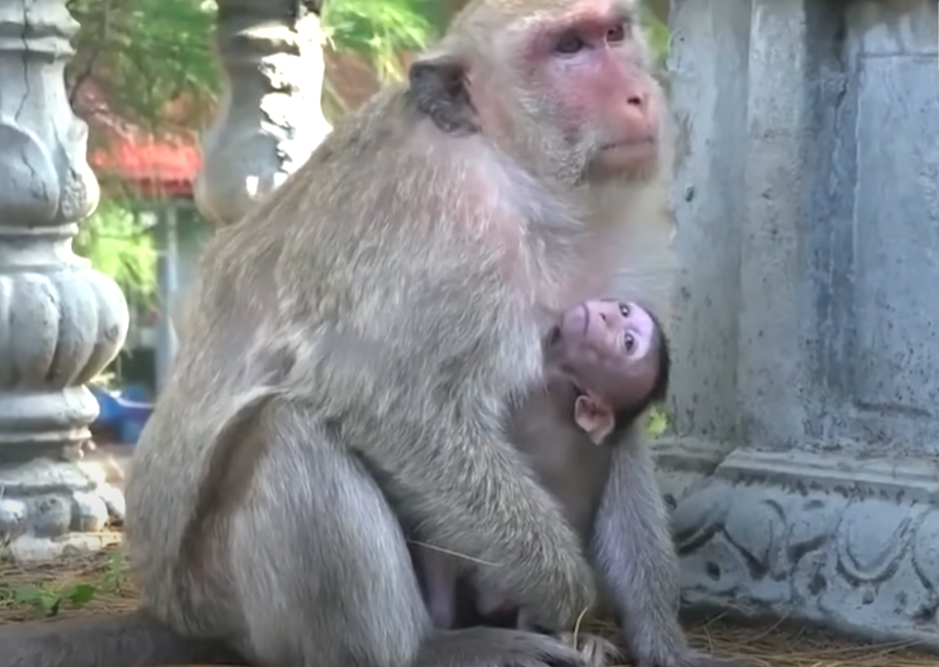
The Angkor Wat forest that morning was soft with mist, the trees heavy with dew. Birds chirped in distant harmony. But for little Miso, a baby monkey only a few weeks old, the day would mark the start of something unbearably difficult.
Clinging tightly to his mother, Sari, Miso let out soft cries — the kind only those familiar with monkeys can truly hear in their hearts. They were not cries of hunger alone… but of confusion, of rejection, and of a desperate yearning for the comfort that only a mother’s arms could bring.
But Sari… she was irritable. Her tail flicked sharply every time Miso reached for her chest to nurse. She turned away. Again. And again. No gentle cooing, no comforting gaze. Only frustration—and silence.
It was a shock to those of us watching. Days ago, Sari had been tender, her love almost poetic. She would curl her arms around Miso, grooming him gently, offering him milk while resting beneath the trees. But something had shifted. Maybe exhaustion, maybe stress from the troop’s constant movements. Or perhaps nature had simply drawn a line… and that line had arrived too soon for Miso to understand.
I remember kneeling in the undergrowth, holding my breath. Sari suddenly snapped—just slightly—but enough to make Miso flinch. He reached again. She swatted his tiny hand away. He tried to climb toward her chest—she turned sharply, leaving him tumbling backward into the dirt.
The baby didn’t scream. He just froze. His eyes, large and wet, searched his mother’s back, as if asking the most heartbreaking question in the world:
“Why won’t you love me like before?”
I watched as Miso slowly made his way back toward Sari, crawling hesitantly, then stopping just behind her. He didn’t try to latch again. Instead, he curled into a ball beside her tail, quietly. Not giving up—but clearly, beginning to understand.
I wanted to cry. Many of us who work in this forest see the rawest versions of nature, but some scenes leave marks deeper than others.
Later that day, Miso tried again. One last time. His lips touched her chest—Sari stood up and walked away.
It wasn’t violent. It was final.
The troop moved on, climbing trees and leaping across mossy branches. Miso followed, slower, smaller, weaker. But he followed. He didn’t cry this time. That, to me, was the saddest part.
He had accepted what none of us ever want to accept:
Sometimes the ones we love most… stop giving us what we need.
As I left the forest that evening, I turned back one last time. Miso sat alone under a banyan tree root, nibbling on a bit of fruit a kind sibling had dropped. He wasn’t playing. He wasn’t laughing.
But he was surviving.
And maybe that was the start of a new kind of strength. One that doesn’t come from milk or protection—but from heartbreak. From the ache of learning how to grow… alone.